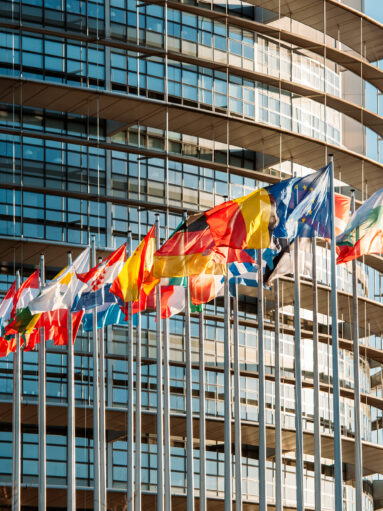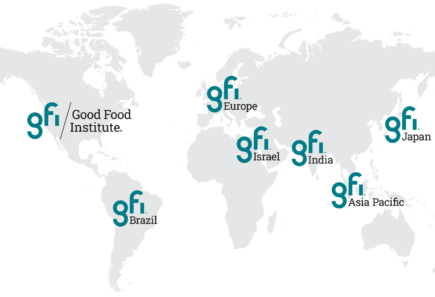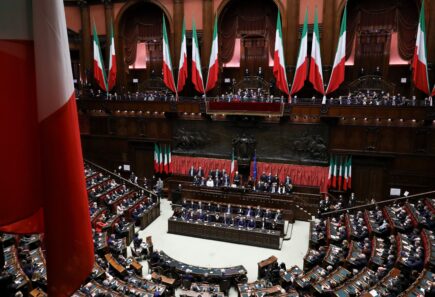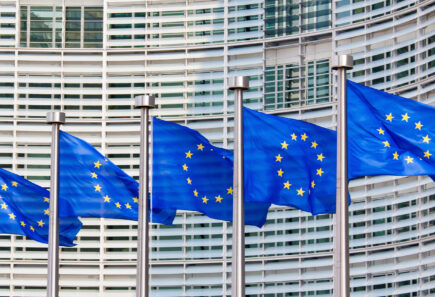Evidence-based regulation
The Good Food Institute Europe’s policy team works to ensure a transparent and robust authorisation process for alternative proteins including plant-based and cultivated meat.

Why is evidence-based regulation important for alternative proteins?

For alternative meat, seafood, eggs and dairy to fulfil their potential to create a more sustainable, secure and just food system, consumers need to be confident in them.
Producers wanting to market cultivated meat and seafood — as well as certain plant-based and fermentation-made foods — must first apply to regulatory authorities for product approval.
European countries have some of the most robust food safety standards in the world. In Europe, most alternative proteins requiring pre-market approval will follow specific regulatory frameworks for novel foods and – in some cases – genetically modified foods.
“Consumers need confidence in plant-based and cultivated meat in order to make sustainable choices.”
Seth Roberts, gfi europe policy manager
How are alternative proteins regulated in Europe?

European Union
Some new foods in the alternative protein space such as cultivated meat and precision fermentation dairy need to be authorised by regulators before they can be sold in Europe. In the EU, once regulators approve a new product, it can be sold across all 27 EU countries – plus Iceland, Liechtenstein and Norway. The authorisation process includes a thorough and evidence-based assessment of the products’ safety and nutritional value, and is estimated to take at least 18 months.
Other European countries
Several other European countries, including the UK, have a similar regulatory framework in place for the assessment and authorisation of new alternative protein ingredients. Switzerland acknowledges approvals under the EU’s novel foods process, but has a separate framework for genetically modified foods.

How are alternative proteins regulated around the world?
Learn more about how global governments, from Canada to Singapore, are regulating alternative proteins like cultivated meat and precision fermentation dairy.
How GFI Europe supports evidence-based alternative protein regulation
GFI Europe works with public authorities, food safety experts and businesses to ensure a transparent and robust authorisation process for alternative proteins.
What we do
- We inform and advise regulatory agencies about innovations and future developments in the alternative protein sector.
- We connect producers to technical experts who can support them with preparing an application and throughout the risk assessment and risk management stages.
- We monitor regulatory approval processes and advocate for them to be transparent and evidence-based so that consumers can be confident in the food they eat.
How you can help
GFI Europe is 100% powered by philanthropy. Our work to evidence-based regulation for alternative proteins is only possible thanks to the generosity of our global family of donors. With your support, we can ensure more governments implement clear regulatory frameworks for a sustainable, secure and just food system.

Our regulation expert
Seth Roberts leads our work to secure a clear and evidence-based regulatory path to market for plant-based and fermentation-made foods, and cultivated meat.







